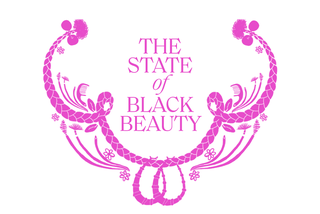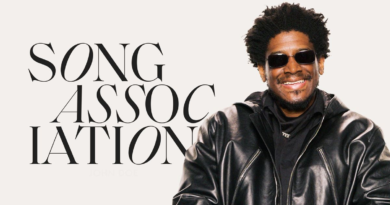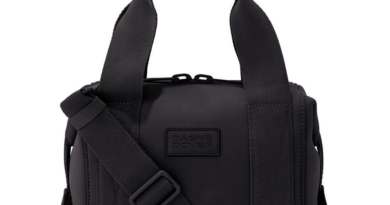Tina Turner Became The Woman I Wanted to Be
Editor’s Note: On May 24, 2023, Tina Turner passed away at the age of 83 years old. The below article was originally published in 2021.
The moment you feel seen is powerful. For many Black women, that feeling is few and far between. For the State of Black Beauty, we asked four writers to recall the instance in their life they felt SEEN in media. From Janet Jackson to Eartha Kitt, here are love letters to our Black Beauty icons who made us feel a little less invisible.
When Tina Turner burst into my life, I was sitting cross-legged on my grandmother’s shaggy carpet flipping through a glossy coffee table book. I had been staring at the book for months at this point, always eyeing the face on the cover. At the time, it felt like a spectacle, something I had no business touching. Tina Turner was in motion on the cover. And even when she’s not moving in photographic form, she’s moving.

I finally picked it up, and these photographs became my first interaction with Turner’s physical form and beauty choices. How she wore her hair, the color of her lipstick, the dress hems that danced on her upper thighs. As much as these details are accessories in the big life of Tina Turner, these were also players in defining her career as a Black recording artist. I could tell her beauty choices were an extension of what she had been through in her life, starting in Nutbush, Tennessee. She had a point of view of the world and on love. I so badly wanted that ability, too.
The Queen of Rock and Roll initially hopped onto the scene with The Ike & Tina Revue in the late 1950s, there was one thing she really had on the other girls. She danced wildly. And when her limbs shook, her dark hair followed.
When Turner emerged again as the comeback kid in 1984, free from Ike Turner and an abusive marriage, she debuted a sharper look. Her hair was cut into a shoulder-length bob with blunt, tousled pieces and lots of volume. It was the style that went on to define the ‘80s. Her hair, as in her wigs, the ones she cut and shaped herself from the beginning of her career. I watched a Youtube clip of her getting ready for a show in Budapest: furiously putting brown eyeshadow on her lids. Tina was not moving slowly — on stage or off — so you could see her. She wasn’t consumed with being for everyone. She was not aiming to be liked. She had already tried that. Now, she was aiming to be Tina. She was a woman who had found her place to be a long time ago: on stage. And her beauty was not buttoned up.
This content is imported from youTube. You may be able to find the same content in another format, or you may be able to find more information, at their web site.
And although her signature shag has changed slightly over the years, it’s always matched her attitude. I soon began to realize that Tina’s beauty was a reflection of what she wanted people to know about her. I wanted to know how she had become that way. So I looked to my grandmother, the owner of that coffee table book.
We called my grandmother Bum Bum. In many ways, she was my first Tina Turner. Born Blondine Harvin, she stood about 5”2 and wore a sandy blonde wig. She was the owner of Gigi’s Restaurant for 50 years, a place that served as a community center and meeting point on the east side of the city. That sandy blonde wig became her signature look during the decades she served. Often, she’d switch it up and wear a more platinum blonde version. You could spot her weaving around tables with plates of grits with cheese (or no cheese.)
I remember watching my grandmother, who loved the jack table and a whiskey, fly to a Tina concert in Las Vegas, or Buffalo. My grandmother liked to step out for dinner, the casino, or a concert, and Turner was part of her entertainment world. As my dad reminded me: my grandmother was a socialite of sorts. “She was a business owner known around the city, and she owned a place where people came to be seen. Tina Turner was probably playing in the jukebox.”
“I think she was someone from her era she could relate to,” my dad said. For my grandmother, Tina’s journey was as paramount as her music. She was my grandmother’s image of an independent Black woman thriving as the 20th century came to a close.” My grandmother passed in 2019, after living her entire life like Tina: completely herself.
As Tina aged, she never stopped showing off. Her dresses did not get longer. Her hair did not grow more tamed. It actually got bigger, and she started to experiment with stronger streaks of blonde. Despite the makeup commitment it takes to be onstage, her foundation application still left so much room to see the smile lines and texture of her skin. She was not hiding from you.
At this time, I got blonde streaks in seemingly random parts of my hair. I was living in New York City and working in newsrooms at the time. When I flipped my hair or styled it in a ponytail, different streaks of blonde framed my face. Yes, the highlights were blonde, but the deeper inspiration came from Tina’s effortlessness: a style I could run my fingers through. I was still trying to find ways to be myself in an environment where fashion and style weren’t the focus off camera. The streaks helped me feel that way.
In 2013, I made a trip to Washington, D.C. to visit the National Museum of African American History and Culture. I picked up a Tina Turner postcard for my grandma; I figured she could put it on her refrigerator. It was in black and white, similar to the coffee table book cover I saw growing up. Now, I see a piece of myself.
Still, in 2021, the same sentiment or notion is confirmed: Images do matter, and growing up amidst the glory of Tina Turner is not a bad way to live. This week, Tina received a nomination for solo induction to the 2021 Rock & Roll Hall of Fame. But I don’t have to tie Tina’s significance to a single sweeping racial, moral, or cultural moment for her to be an icon. Watching her exist is beauty itself.

Contributor
Darian Symoné Harvin is a reporter and news curation editor covering beauty at the intersection of politics and pop culture. She writes the newsletter BEAUTY IRL, which is an extension of her work across various publications. Darian grew up in Buffalo, New York, and lives in Los Angeles.





